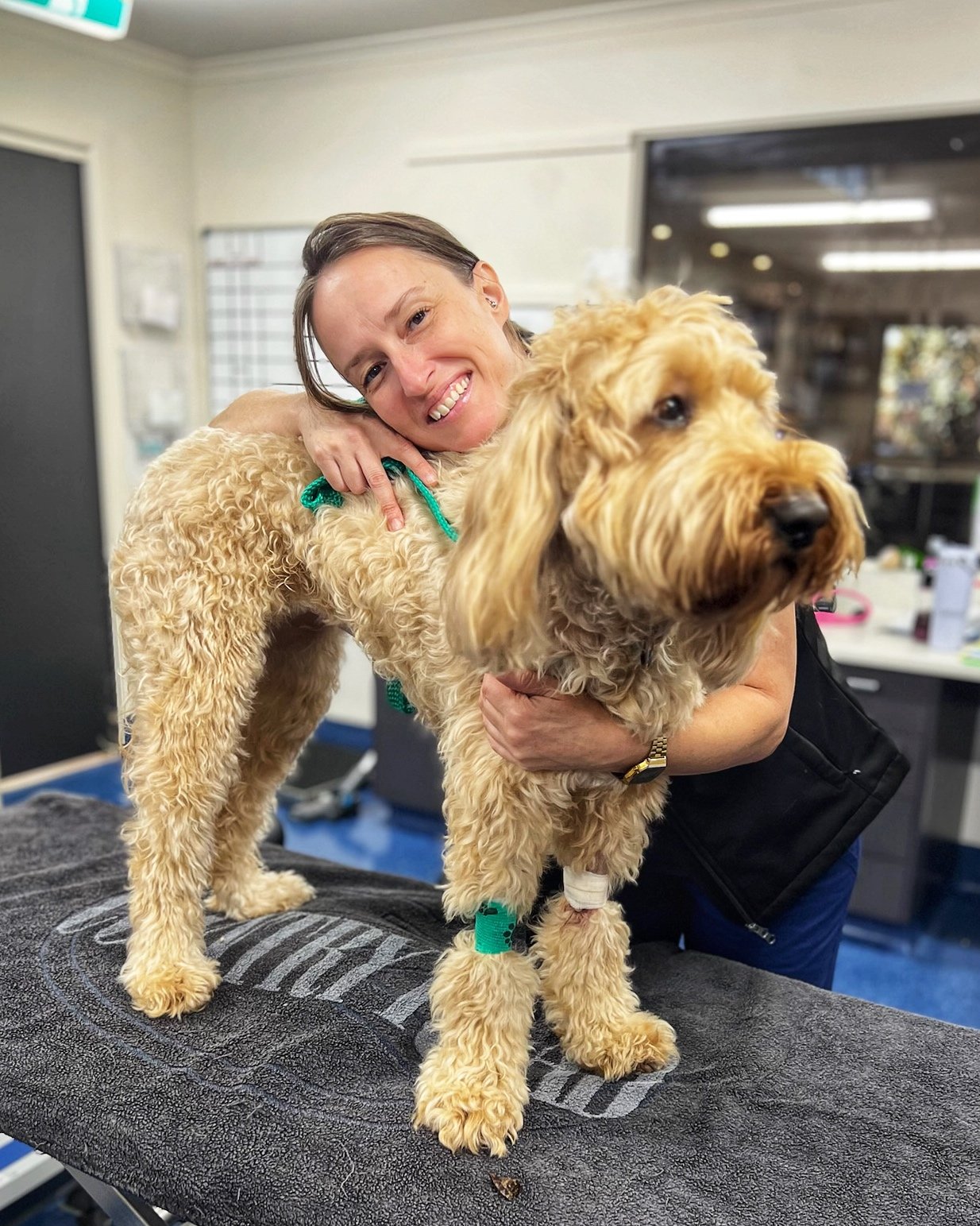Diabetes mellitus is a relatively common hormonal condition in both dogs and cats where the body does not produce enough insulin. Diabetes is fatal if not treated, but when treated, we expect for the cat or dog to live as long as they would otherwise live if they did not have diabetes. This condition can be very rewarding to treat, and often through treatment, the bond between you and your pet friend becomes closer and stronger.
Insulin is a hormone that is produced in the pancreas, which sits just next to the stomach. Insulin acts like the 'key' to allow glucose and other nutrients into cells where it used to create energy. When glucose increases, insulin production increases. Without sufficient insulin, glucose builds up in the blood where it can't be used and blood glucose can become very high.
High levels of glucose in the blood are toxic and so the body tries to get rid of this extra glucose by excreting it out of the kidneys. The glucose takes water with it, which is why diabetic animals urinate large volumes. In order to avoid dehydration as a result of these fluid losses, the diabetic patient will drink a lot of water.
With insufficient glucose being taken up by cells, the body enters a starvation mode and diabetic patients tend to lose weight. This also makes them lethargic. In an effort to compensate for this weight loss, the appetite increases.
DIABETIC CONSULTATIONS
-
While the causes in our patients are not exactly the same as they are in humans, both genetic and environmental factors can influence the onset of the disease. Contributing factors include age, breed, certain diseases (e.g. pancreatitis), body weight, medications, and desexing status.
-
Increased water intake/thirst
Increased urine production - sometimes inside
Increased appetite
Weight loss
Lethargy
If there are other signs, such as vomiting, decreased appetite, or diarrhoea, these are caused by an additional and separate problem.
-
When diagnosing diabetes, we will spend time discussing your pet's history with you, as well as performing a thorough physical examination. Diabetes usually occurs in older patients, and like in humans, older patients are also more susceptible to additional conditions. We will perform comprehensive blood and urine tests at this time, which also allows us to assess other body systems and obtain a holistic understanding of your pet's condition.
Diagnosis of diabetes is dependent on demonstration of at least some of the above clinical signs, as well as increased blood glucose and increased urine glucose. Once we have diagnosed diabetes, we will then formulate a treatment plan particular to your pet, household, and routine.
-
While there have been recent developments in different approaches to treatment of diabetes in cats, generally speaking in cats and dogs, insulin injections are still the mainstay of management of diabetes in these animals. Injections are usually well tolerated and we can offer advice and support when forming a treatment plan for your pet.
When formulating your treatment plan, we might suggest changes in feeding habits and foods for your pet friend. This is individualised and not necessarily required in all cases.
-
While it can seem overwhelming when you learn that your pet friend has diabetes, it is important to keep in mind that the prognosis is very good with treatment. Usually treatment is life-long, but we can usually adapt management routines to suit each individual situation.
-
Here at Westernport Veterinary Clinics we are excited to be able to offer an outstanding service for dogs and cats who have diabetes. With over 20 years of experience as a veterinarian — including time in referral practice at a veterinary diabetes clinic — Dr Sarah Pierard has extensive experience treating diabetic dogs and cats, as well as dogs with Cushing’s Syndrome. Sarah has a Masters Degree in Small Animal Veterinary Practice and obtained Membership to the Australia and New Zealand College of Veterinary Scientists in the Small Animal Medicine chapter in 2021.
While general recommendations can be made, every patient is an individual, and Dr Sarah will tailor your pet's treatment program to suit your household and your pet's needs.
She is available for consultation and looks forward to meeting you and supporting you through your diabetic dog or cat’s journey.
Please contact us for more information or to make an appointment.

